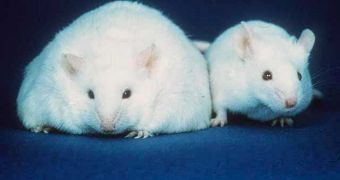According to a new investigation by researchers at the Harvard University, it would appear that the current obesity epidemic sweeping the United States will not cease until about 42 percent of the general population is affected.
The research also takes into account several factors that other studies did not consider when making estimates, such as for example the influence of social networks on each individual.
In other words, what the study is saying is that people are more likely to become fat if they have fat friends. Social influence is not to be ignored in this issue, the research team says.
These conclusions contradict results obtained earlier this year by the US Centers of Disease Control and Prevention (CDC), which showed that the obesity epidemic may have already reached a plateau at 34 percent of the population.
This level has been holding steady for 5 years, but the Harvard investigators say that another 40 years might pass until the peak of the epidemic reached, LiveScience reports.
“Our model suggests that, based on rates of [people]becoming obese that we've measured, it seems that even though it's slowed down, it will continue to increase,” says Harvard Program for Evolutionary Dynamics graduate student and study researcher Alison L. Hill.
One of the most important results in the study is the discovery of a ripple effect that obese people send out in their social networks. These influences are likely to contribute to a rise in obesity in their currently non-obese peers.
The research team used an approach similar to tracking the spread of flu in the general population to arrive at these conclusions, Hill adds.
“Data suggests the dynamics are the same for obesity, even if the mechanisms are different. Maybe it's mimicking behavior or adopting similar lifestyles, or changing what you consider to be a normal and acceptable weight for yourself based on the weight of people around you,” she adds.
“It's most likely to be some social influence,” Hill goes on to say. Her team identified three main factors that influence obesity rates in the United States.
The first is contact people make with each other through social networks, the second is the set of personal choices each individual makes, such as for instance whether to eat healthy or exercise, and the third is the rate at which people lose weight.
Additional details of the new investigation appear in the November 4 issue of the open-access journal PLoS Computational Biology, which is published by the Public Library of Science.

 14 DAY TRIAL //
14 DAY TRIAL //